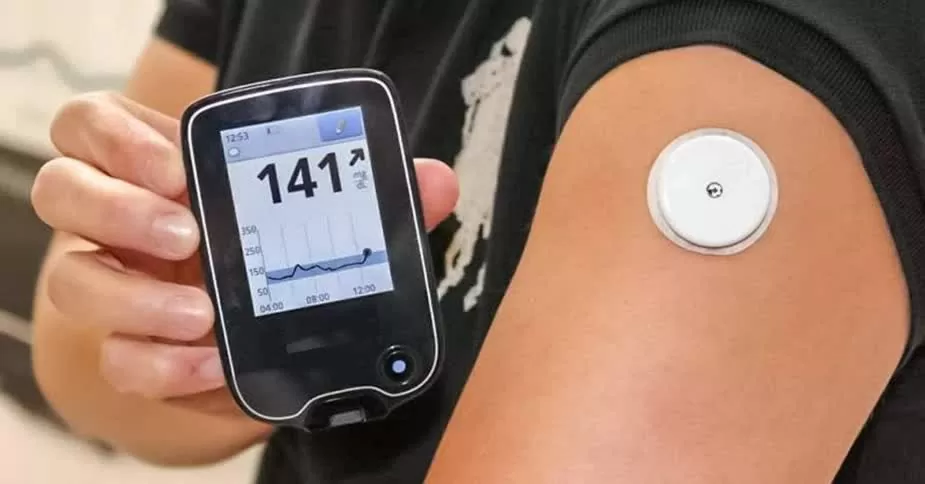 |
| Continuous glucose monitor (CGM). (Source: Sydenham Clinic) |
With more than 38 million Americans living with diabetes – a disease that occurs when blood sugar levels are high because the body doesn’t produce enough insulin or becomes resistant to insulin, causing serious damage to the heart, kidneys and vision – CGM is a revolutionary tool.
No longer needing to prick the blood constantly throughout the day, users simply stick a small sensor patch on their arm or abdomen. A small needle gently penetrates the skin, measuring the concentration of sugar in the interstitial fluid and sending data every few minutes to a phone or handheld device. This technology helps patients adjust insulin doses accurately, monitor the body's response after each meal or exercise session - something that was nearly impossible before.
Surprisingly, however, the vast majority of CGM users today do not have diabetes. Thanks to aggressive marketing campaigns by health tech companies and influential individuals, CGMs have become a must-have item for those who are passionate about personal health tracking down to the smallest detail, helping them “know themselves better” through blood sugar data after each meal or when exercising.
Faced with this situation, medical experts warn of a dangerous trend: Using CGM without clinical indications.
There's little evidence that CGM is helpful for people with normal blood sugar levels, says Dr. Jody Dushay, an endocrinologist at Beth Israel Deaconess Medical Center.
She explains that a healthy body is very efficient at regulating blood sugar. Fluctuations in blood sugar after meals are completely normal. The problem is that many people worry too much about these minor fluctuations and can create a feeling of illness where there is no illness.
The expert also warned that the devices are not always accurate and sometimes give misleading results, especially if not properly instructed.
Meanwhile, Dr. David Kessler said people with no risk factors for diabetes are using monitors simply out of curiosity. Having worn a CGM himself for research while writing his book, Mr. Kessler admitted that “it’s an interesting tool to experiment with.”
For people with prediabetes, obesity, or a history of gestational diabetes, CGM can be a useful tool, Dr. Dushay said. But for the rest of us, chasing blood sugar numbers when our bodies are otherwise functioning properly can lead to unnecessary anxiety and a number-driven lifestyle.
Source: https://baoquocte.vn/thiet-bi-do-duong-huet-lien-tuc-loi-bat-cap-hai-323071.html


![[Photo] Chu Noodles - the essence of rice and sunshine](https://vphoto.vietnam.vn/thumb/1200x675/vietnam/resource/IMAGE/2025/11/11/1762846220477_ndo_tl_7-jpg.webp)



![[Photo] Prime Minister Pham Minh Chinh receives Lao Minister of Labor and Welfare Phosay Sayasone](https://vphoto.vietnam.vn/thumb/1200x675/vietnam/resource/IMAGE/2025/11/11/1762872028311_dsc-2246-jpg.webp)




























































































![Dong Nai OCOP transition: [Article 3] Linking tourism with OCOP product consumption](https://vphoto.vietnam.vn/thumb/402x226/vietnam/resource/IMAGE/2025/11/10/1762739199309_1324-2740-7_n-162543_981.jpeg)








Comment (0)